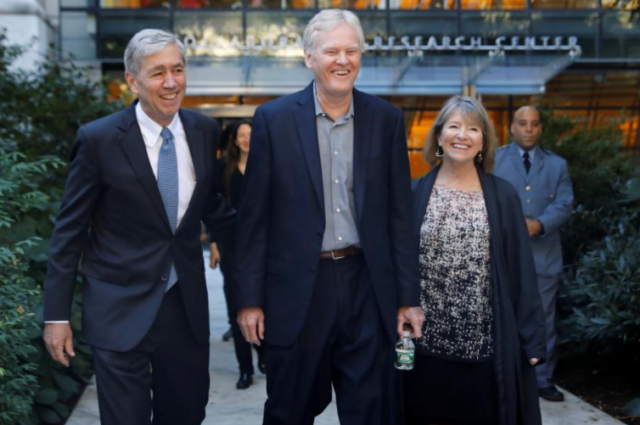
U.S. scientists Jeffrey Hall, Michael Rosbash and Michael Young won the 2017 Nobel prize for medicine on Monday for unravelling molecular mechanisms that control our internal body clocks. Scarlett Cvitanovich reports.
U.S. scientists Michael Young and Michael Rosbash, two of the three winners of the Nobel prize for medicine, say they were “taken by surprise” and “stunned” at receiving the coveted award. Watch and listen to how their day started:
U.S. scientists Jeffrey Hall, Michael Rosbash and Michael Young won the 2017 Nobel prize for medicine on Monday for unraveling molecular mechanisms that control our internal body clocks.
These help explain how people experience jet lag when their internal circadian rhythms get out of sync, while also having wider implications for disorders ranging from insomnia to depression to heart disease.
Chronobiology, or the study of biological clocks, is now a growing field of research thanks to the pioneering work of the three scientists, who explained the role of specific genes in keeping fruit flies in step with light and darkness.
Today, scientists are exploring new treatments based on such circadian cycles, including establishing the best times to take medicines, and there is an increased focus on the importance of healthy sleeping patterns.
“This ability to prepare for the regular daily fluctuations is crucial for all life forms,” Thomas Perlmann, secretary of the Karolinska Institute Nobel Committee, told reporters.
“This year’s Nobel prize laureates have been studying this fundamental problem and solved the mystery of how an inner clock in our bodies can anticipate daily fluctuations between night and day to optimize our behavior and physiology.”












